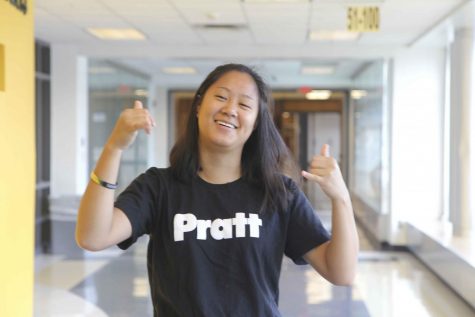BV freshman Saketh Pachalla said he went to London over the summer where he was inspired to write a show where he rewrites songs for certain instruments with his friends while he dedicates time to the BV Marching Band.
Band Commitment
Pachalla has been in band for five years, playing a number of instruments through his years, mainly trumpet, but he also knows how to play french horn and piano. Pachalla said he was in jazz band and regular band in middle school, and now he is in marching band for BV which he enjoys more than middle school band.
“High school band is a lot more involved, a lot more fun and a lot more like family,” Pachalla said. “[Middle school band is] just part of school, and you don’t really feel attached.”
Though BV band is more fun, it’s also a very large commitment, say many entering freshman band participants. Pachalla said the commitment for band is huge, and a player can’t do too many other extracurriculars if he or she is in band.
“They encourage you to [practice outside of school], but a lot of the times you don’t really have to,” Pachalla said. “You have to have it memorized, and that requires a lot of work.”
For their out-of-state competitions, Pachalla said they practice at 7 a.m. and through their first hour of school which is also band. In addition, on Thursdays, they have 6 to 9 p.m. rehearsal, and on Saturdays, they have 12-4 p.m. practice.
“In [our competition in] Tulsa, we didn’t win any awards in prelims,” Pachalla said. “We slipped into finals and we got ninth place out of twelve.”
According to freshmen Andrew Stark and Mark Rohaut, participants in Pachalla’s show, band looks like one big family full of spirit.
“I think it’s a really nice group, and you get a head start on high school,” clarinetist freshman Andrew Stark said. “It takes lots of dedication.”
Meaning of Arrangement of Songs
Pachalla’s show is called “Like Father, Like Son” and consists of three songs from alternative band Twenty One Pilot’s new album, including “Implicit Demand for Proof,” “The Pantaloon” and “Isle of Flightless Birds.”
“I chose them because they work well together, and they all express the same opinion,” Pachalla said.
Pachalla said he was inspired to write this show when he was in London. He said he listened to their album on the bus and in the Tube, London’s subway — he thought the three songs would make a good arrangement.
“The second song is called the Pantaloon, and it’s about how craziness runs in the family. The first and third song — ‘Isle of Flightless Birds’ and ‘Implicit Demand for Proof’ — is about God [and] acceptance and how God is your father so ‘Like Father, Like Son.”
Pachalla said he practices a form of Hinduism called Atheist-Hinduism, and the God the show is revolved around is the Catholic God. Since the singer and writer of Twenty One Pilots, Tyler Joseph, is Catholic, Pachalla interprets what Joseph says in his music.
“We’re probably not going to do the second and third song — it’s still a theory at the moment,” Pachalla said.
Writing Music and Structure of Show
Pachalla said he is planning for many instruments to be in the show, including the cello, drums, xylophone, violin, clarinet, tenor sax, bass clarinet, baritone, trombone and the piano.
“Saketh wanted to do it by himself, so he is writing the music for [most parts],” Stark said.
Pachalla said there are currently 30 people in the group, but his ultimate goal is to cut down to 25 people.
“We have a GroupMe, and we’re discussing it in there, seeing when people can and can’t go right after school,” Stark said. “Our first rehearsal is coming up.”
Freshman Mark Rohaut, drummer of the show, said the show opens up opportunities for those not in band to play instruments they like. Rohaut is responsible for the drum music.
“I’m not really writing the music — I’m just listening to the song and interpreting what [the drummer, Josh Dun, is] playing,” Rohaut said.
Pachalla said the piano music was written by pianist for the show, freshman Amit Israeli.
However, for every other instrument, Pachalla is writing the music, and he has a certain routine.
“The process is pretty easy,” Pachalla said. “I have this app on my phone, and it’s called Total Energy Tuner. You think of a note, you hum it, and then you change the instrument based on the tuner. Then you hum on it, and it will read the note back to you, and then you write it down on the staff. It’s a lot easier than people think it is.”
Stark said while he was not sure the show would work out at first, he’s more confident in Pachalla because Pachalla is very dedicated to the show.
“I saw this thing on TBS, and [it’s when I] learned to love music,” Pachalla said. “It’s about a person from the Democratic Republic of Congo who wanted to learn how to sing, so they got a German instructor. They didn’t know how to communicate with each other, [yet] the German taught [the] Congolese person how to sing a song. Then I realized music really connects people.”




